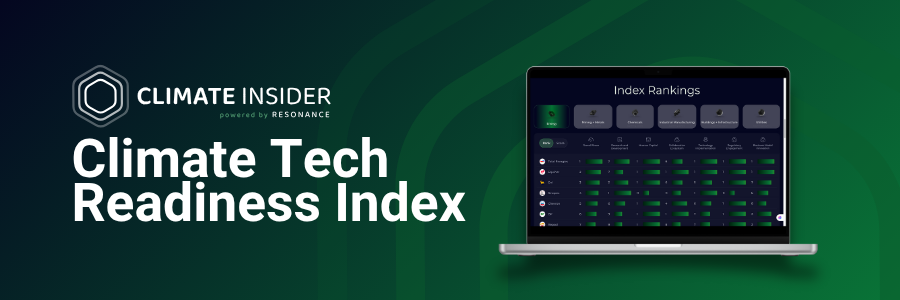Insider Brief
- The 2025 CREO Climate Investment Survey highlights family offices as the dominant investors in climate-focused funds, with over a third of managers reporting they account for most of their committed capital.
- Despite a challenging fundraising environment, with 50% of funds taking over 18 months to close, 81% of managers have reached or expect to reach at least 75% of their target size.
- Energy remains the leading investment sector, while agriculture has surged in priority, and clean energy tops fund managers’ environmental impact goals.
Although access to capital, a tough exit environment, and regulatory and political risks were top challenges reported by climate fund managers in CREO’s 2024 Climate Investment Survey, long-term optimism remained strong with funds focused on the energy sector and agriculture.
The climate-focused New York non-profit’s yearly survey was answered by 127 fund managers, representing an aggregate $994 billion in assets under management.
Family offices are the dominant investors in climate-focused funds, with over a third of surveyed managers reporting that high-net-worth individuals and family offices account for the majority of their committed capital, according to the 2025 CREO Climate Investment Survey. Another quarter of managers said families contributed between 26% and 50% of their funds’ capital.

Early-stage venture managers made up a large number of the respondents at 46%. with the next highest number made up of growth equity managers.
Despite a slightly improved fundraising environment in 2024, challenges persist, with 50% of funds requiring more than 18 months to reach a final close. That represents a 25% increase from last year’s survey.
“Despite slightly longer fundraising cycles, more managers have closed or expect to close near target,” the report noted, adding 81% of managers have closed or are expected to close their funds at 75%+ of target size compared to 67% last year.
The energy sector continued to attract the most investment, driven by increasing demand from data centers, electrification efforts, and onshoring trends. Energy storage, generation, and distribution rank among the top four focus areas for surveyed funds, with over a third of deployed capital directed toward the sector. Behind is Natural Resources & Environment and Food sectors, showing an increase compared to the 2024 survey.
Primary Agriculture jumped from being ranked 10th, coming in behind energy storage and generation at number three, ahead of energy distribution.
Venture capital firms reported the biggest challenges, with just more than half marking down their net asset value (NAV) in 2024 and 40% anticipating further declines in 2025. Meanwhile, private equity funds largely marked up their NAVs and expect further gains in the coming year. Bridge round activity is slowing as venture investors deal with down rounds, consolidations, and bankruptcies.
As far as the environmental impact goals of fund managers, Clean Energy topped the list with 61% of respondents, a change from last year’s survey when Carbon Removal was ranked first. This year it was racked third at 53% with Energy Efficiency ahead of it at 58% as far as goals. took the top spot this year, followed by Energy. Sustainable Agriculture jumped 3 ranks and Biodiversity and Ecosystem moved up 4.
Regulatory and political risks have climbed the list of concerns for fund managers, ranking just behind fundraising challenges. Worries over the exit environment have also intensified, with nearly half of managers reporting a tougher climate for exits compared to 2023. However, long-term sentiment remains optimistic, with respondents rating the eight-year growth potential of climate investments at 8.6 out of 10.
“Portfolio management was a key focus in 2024, with over a quarter of managers deploying more capital into existing companies than new opportunities, and roughly a third of venture investors following this same pattern,” CREO noted in the survey report. “While a majority of managers (56%) deployed more into new opportunities in 2024, this was far less than the 82% of managers from last year’s survey. that expected to do so.”
As for the reasons fund managers chose not to invest in opportunities, Business Model Concerns, Valuation Concerns, and Management Team Concerns were overwhelmingly the top three reasons and consistent with the year before.
Climate impact measurement is becoming the norm, with over 90% of managers using at least one framework and 70% employing multiple approaches. European funds lead in integrating impact frameworks, with nearly half linking compensation to impact outcomes.
Survey respondents are primarily headquartered in North America and Europe, with San Francisco, London, and New York emerging as key hubs. Over 60% of managers deploy capital outside their home region, with North America and Europe being the leading destinations.
Looking ahead, fund managers anticipate an increase in investible opportunities, with 75% reporting growth in 2024 and 76% expecting more deals in 2025. Two-thirds of managers plan to increase capital deployment in 2025, with European investors showing a higher inclination to accelerate spending compared to their North American counterparts.
Managers indicated only a slight increase in outlook when it comes to the fundraising environment compared to last year, with 76% of growth equity managers ranking it at 4 or below on a scale of 1 to 10. Private equity managers scored it at a 5.
As climate investments mature, the industry faces a mix of growing optimism and persistent challenges. While energy-related projects remain a focal point, concerns about regulatory uncertainty, access to financing, and exit conditions look to shape investment strategies in 2025.








